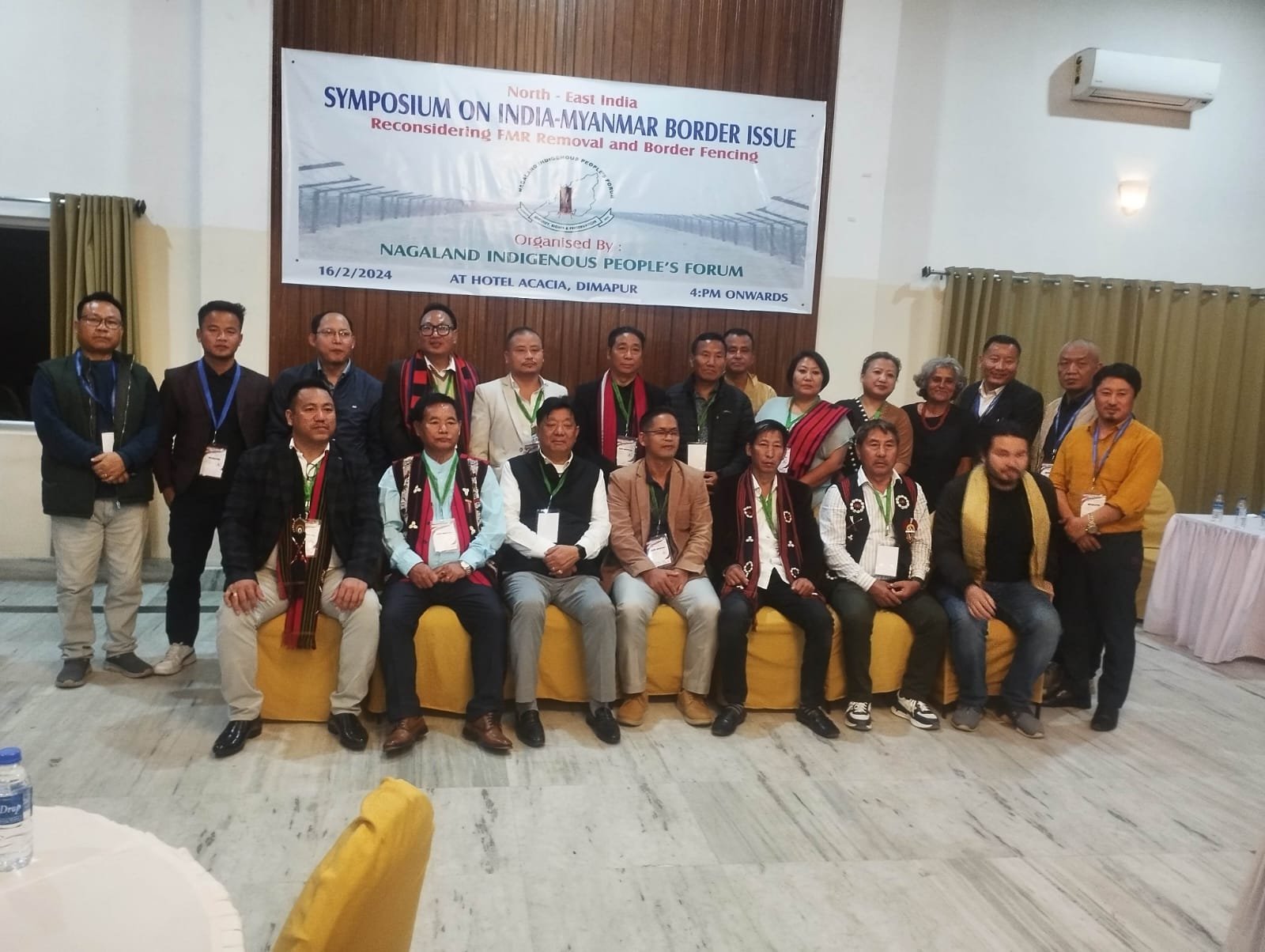HT Bureau
GUWAHATI, March 17: In a strong statement against recent policies of the Indian government, the Nagaland Indigenous People’s Forum (NIPF) and Zo Reunification Organization (ZORO) have expressed vehement opposition to the decision to abolish the Free Movement Regime (FMR) and erect a fence along the India-Myanmar border. These resolutions were among several adopted on March 16, addressing concerns over various governmental policies including the Citizenship Amendment Act (CAA), Forest Conservation Act (FCA), and Armed Forces Special Power Act (AFSPA).
The joint Memorandum of Understanding (MoU) signed by Dr. T Lima Jamir, President of NIPF, and R. Sangkawia, President of ZORO, highlighted the adverse impact of scrapping the FMR and border fencing, particularly on the Zo ethnic (Chin-Kuki-Mizo) population residing across India, Burma, Bangladesh, and Nagaland. They emphasized that historically, these regions were recognized as “Excluded Areas,” distinct from both Indian and Burmese governance during British colonization.
The organizations pointed out specific repercussions such as the loss of villages and cultivable land, particularly in Mizoram and Nagaland. They underscored the economic vulnerability of border communities and criticized the unfriendly monitoring by Border Security Forces, leading to the arbitrary arrest of villagers.
Furthermore, NIPF and ZORO raised concerns about the implementation of the Forest Conservation Act, which they argued would result in the loss of significant agricultural land essential for their livelihoods. They linked the Citizenship Amendment Act closely with the FMR and border fencing, expressing apprehension about its implications for the indigenous population.
The issue of the Uniform Civil Code was also addressed, with the organizations expressing worries about its potential impact on the unique customs and traditions of tribal communities in the North East. They staunchly opposed any measures that would undermine their cultural heritage.
Regarding the Armed Forces Special Power Act, NIPF and ZORO condemned it as discriminatory and called for its immediate repeal, citing its oppressive nature in the North East.
Lastly, the organizations invoked Article 36 of the United Nations Declaration on the Rights of Indigenous Peoples, arguing that the proposed policies were in direct contradiction to its principles. They urged the Indian government to revoke these laws and acts while seeking the support of Nagas and Zo ethnic tribes in their endeavor.
The opposition from these indigenous organizations signifies a growing dissent against governmental policies perceived as detrimental to the rights and livelihoods of marginalized communities in the region.












